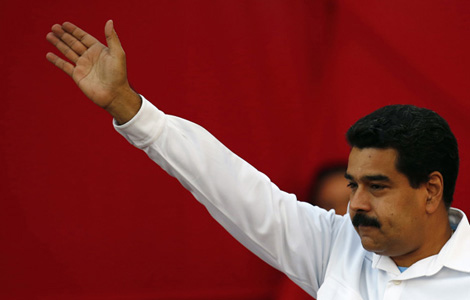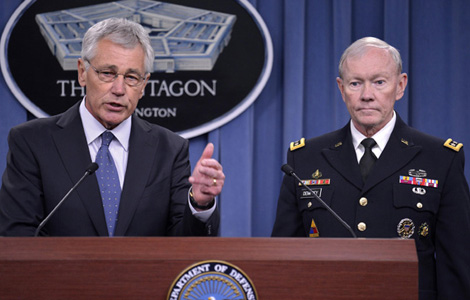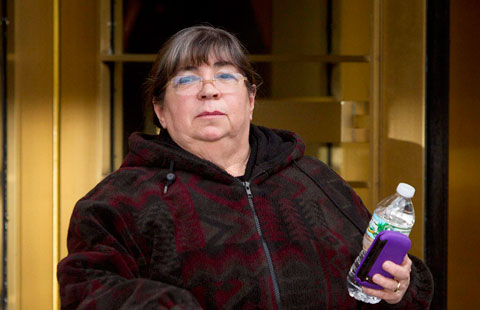Paris 2015: Climate and the Business Imperative
Updated: 2014-02-25 17:39
By Paul Polman And Christiana Figueres (chinadaily.com.cn)
|
||||||||
Editor's note: Paul Polman is Chief Executive Officer of Unilever, Chairman of the World Business Council for Sustainable Development, and Commissioner - Global Commission for the Economy and Climate, and Christiana Figueres is the Executive Secretary of the UN Framework Convention on Climate Change.
The views do not necessarily represent those of China Daily.
The wild weather being witnessed across the globe - from Australia's hottest summer to Britain's wettest winter - is spelling out some of the sobering impacts facing everyone from unchecked climate change. The unprecedented impacts are a wake-up call to all of us.
Fortunately there is also a wake-up call in board rooms and corporate associations. Indeed something extraordinary is happening in 2014 that holds the seeds of a more comprehensive response to the realities at hand and the promise of a new, and more importantly meaningful, universal climate agreement in Paris in 2015.
Just as the evidence paints a bleak picture of a hotter, more volatile planet, more leaders in all sectors are recognizing the need to come together to work through the political challenges holding back progress. Underlying this is the insight that climate change is not just a grave risk to business continuity, but an equally prodigious opportunity to lead the development of a new, low carbon economy.
The World Business Council for Sustainable Development's Action 2020 program is a case in point. It will shortly deliver a suite of scalable business solutions to a range of climate and development challenges.
The formation of the B-Team is another good example: its vision of a world in which the purpose of business is to be a driving force for social, environmental and economic benefit has many businesses stepping up to lead.
It's a shift in corporate understanding that has not happened a moment too soon.
The UN estimates that economic losses from natural disasters since 2000 are $2.5 trillion, at least 50 percent higher than previous international estimates.
Scientific American recently reported that floods alone could cost the world's cities $1 trillion annually by 2050.
Anyone who wants to be in business over the coming years and decades needs to engage now on both the politics and the policy.
Politically much depends on the choreography of key meetings in the run-up to COP21 in Paris in 2015, not least UN Secretary General Ban Ki-moon's Climate Summit in New York this September.
But most of all it depends on the extent to which leaders in every sector feel empowered to lead.
This is why we welcome the Global Commission on the Economy and Climate, led by former Mexican President Felipe Calderon. It is examining how nations, cities and companies can achieve their core economic and social goals whilst simultaneously reducing the risk of dangerous climate change.
So what action do business leaders need to take individually and collectively?

 US expels Venezuelan diplomats
US expels Venezuelan diplomats
 Pentagon chief plans to reduce US army size
Pentagon chief plans to reduce US army size
 2nd Madoff aide testifies, denies knowledge of fraud
2nd Madoff aide testifies, denies knowledge of fraud
 TAO Dance troupe premieres '5' at NYU
TAO Dance troupe premieres '5' at NYU
 Top 10 cities with worst smog in China
Top 10 cities with worst smog in China
 Playing with pandas
Playing with pandas
 Explosion, gunfire ring out near Bangkok protest site
Explosion, gunfire ring out near Bangkok protest site
 President Xi spotted at popular hutong in Beijing
President Xi spotted at popular hutong in Beijing
Most Viewed
Editor's Picks

|

|

|

|

|

|
Today's Top News
Asiana Airlines fined $500K over SF crash
'Comfort station' to be preserved
US planning full Afghan pullout
Four million have signed up for Obamacare
US expels Venezuelan diplomats
US firms in China look to services
Shanghai looks set for mini baby boom
Six officials caught in sex scandal sacked
US Weekly

|

|






